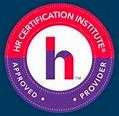Essentials for Documenting Investigations
Duration : 60 Minutes

This course, has been approved for 1 HR (General) recertification credit hours toward aPHR™, PHR®, PHRca®, SPHR®, GPHR®, PHRi™ and SPHRi™ recertification through HR Certification Institute® (HRCI®).
Dr. Susan Strauss,
Dr. Susan Strauss is a national and international speaker, trainer, consultant and a recognized expert on workplace and school harassment and bullying. She conducts harassment and bullying investigations and functions as an expert witness in harassment and bullying lawsuits. Her clients are from b Read more
As the saying goes - If it isn’t documented, it didn’t happen! Documentation is essential for many legal issues, disputes, audits, meetings, and decision making, to name a few. Perhaps nowhere is it more critical than when documenting your investigation. Your documentation memoralizes the entire investigation, it minimizes confusion, corroborates stories and evidence, demonstrates patterns of behavior and supports your final decision. Investigative documentation is critical enough that it may prevent a lawsuit, or at least minimize damages. Your documentation is evidence of action taken in response to a complaint.
Documentation must start from the beginning of your investigation when you receive a complaint, and continue throughout the investigative process. The documentation will include the intricacies of your interviews with the accuser, the accused, and witnesses, as well as which documents you accessed (and how to cite them) in making your final decision. The final report, which all investigations require, is a culmination of all the documentation of your investigation, which is discoverable if an employee files a formal charge with the EEOC or your state’s human rights department, or if you are sued. A number of critical actions are required as part of your investigation such as determining credibility of each interviewee, corroborating evidence and reaching a conclusion –all which require documentation of your rationale for each step. In order to write a thorough report, investigators must make a decision as to whether the investigated misconduct was a violation of any laws or policies and document these findings in an objective, accurate and concise manner – and document how your decision was arrived at.
Course Objective:
To ensure your documentation of the investigation is complete, objective, and inclusive of the investigative process and outcome, and demonstrates the organization’s response to the complaint was fair, impartial, and competent which minimizes liability.
Course Outline:
• To plan the investigation documentation process
• To identify documentation requirements for an investigation to reduce liability
• To document the rationale behind your investigative opinions such as how you determined credibility and reached conclusions
• To determine appropriate documentation technique related to resources accessed online and hard copy resources
• To list the Do’s and Don’t’s of documenting the investigation
• To discuss the documentation elements of the final report
What You Get:
• Training Materials
• Live Q&A Session with our Expert
• Participation Certificate
• Access to Signup Community (Optional)
• Reward Points
Who Will Benefit:
This webinar will provide valuable assistance to all personnel in:
• Human Resources Specialists and managers
• Supervisors and Managers
• Executives and Business Owners
• In-house counsel
• Human Resources Staff
• HR Analysts
• HR Directors
• Employee Relations Professionals
• Employment Managers/Specialists
• HR Coordinators/Supervisors
Please reach us at 1-888-844-8963 for any further assistance or if you wish to register

100% MONEY BACK GUARANTEED
Refund / Cancellation policyGet In Touch
Similar Trainings
Linking Pay to Performance: Increasing Employee Engagement & Organizational Performance
LIVE : Scheduled on
03-April-2025 :01:00 PM EST
|
